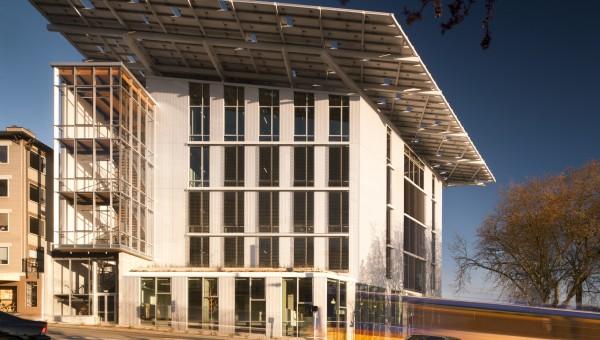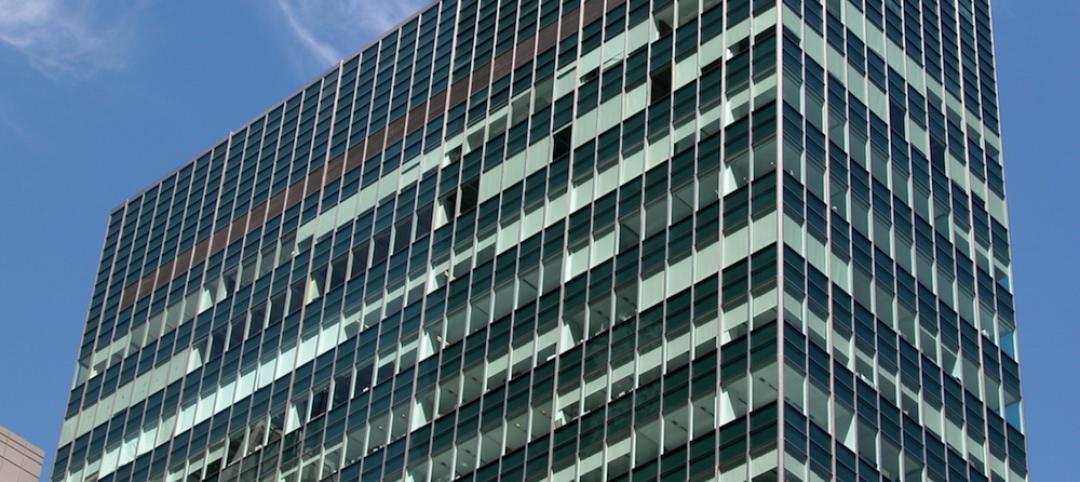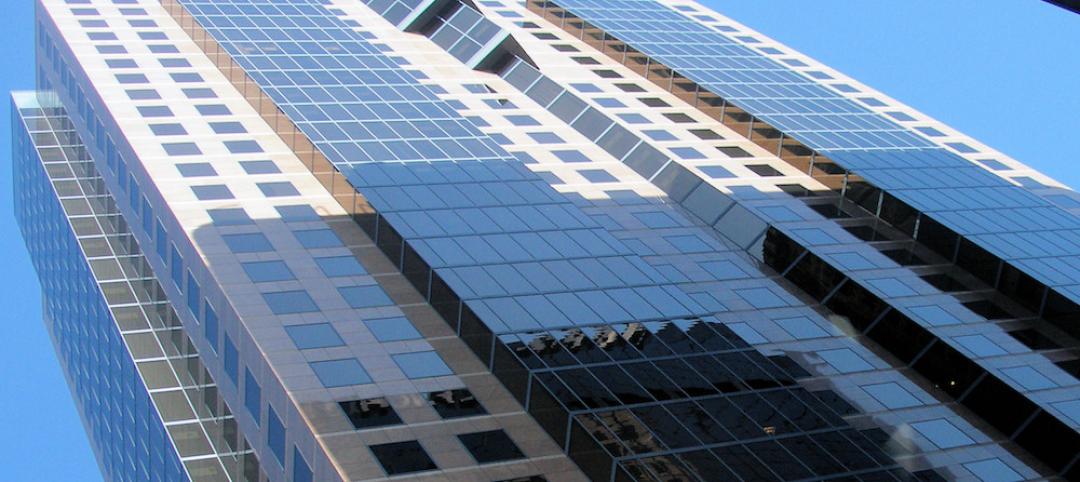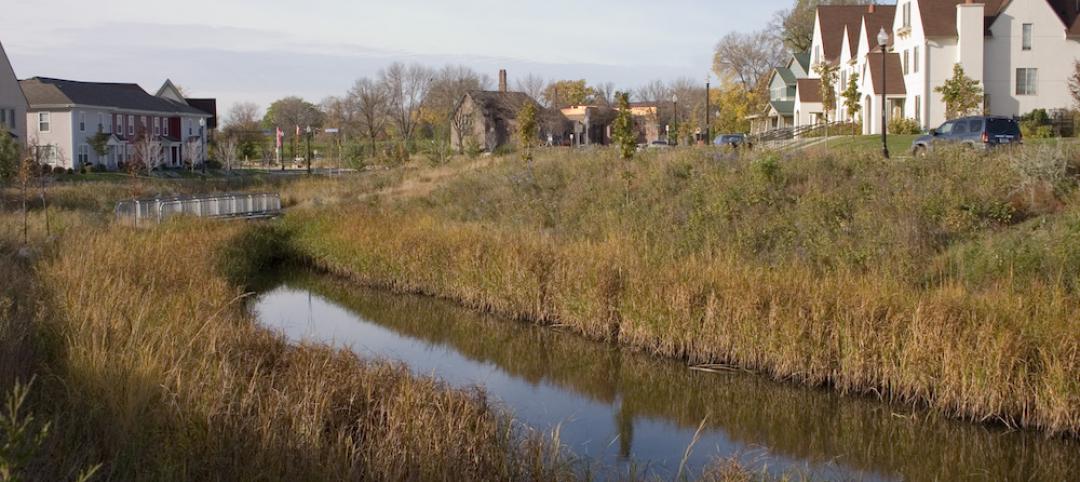The Bullitt Center in Seattle, which some say is the world's "most efficient" office building is not only influencing how other structures are built, it is contributing to revisions of codes and public policy.
The building’s design was made possible by Seattle’s Deep Green Pilot Program that allows builders to deviate from standard codes to build more sustainably. For example, the building was allowed to add two to three feet to the height of each floor to allow more daylighting. Neighbors objected to the additional 10 feet in overall building height, but the program permitted the non-conforming design.
Some of the building’s code deviations have been incorporated into the city code. For instance, the city council and the mayor had to approve changes to the building code to allow permits for “sustainability features.” This move allows the building’s solar canopy to extend all the way to the property line.
Bullitt Foundation, the environmental group that owns the building, recently signed a first-in-the-nation agreement with the local utility that will allow the foundation to sell Seattle City Light the energy it is saving or “negawatts.” The arrangement, known as MEETS (metered energy efficiency transaction structure) could be a pioneer in drawing investment funds to energy-efficiency projects.
Bullitt is also seeking final approvals from the county and state to turn the building into its own water district. That designation would allow tenants to drink rainwater collected on site and treated in the building’s basement.
(http://grist.org/business-technology/how-one-building-is-changing-the-world/)
Related Stories
Codes and Standards | May 27, 2016
Better enforcement needed for successful implementation of energy efficiency policies
Commercial buildings the focus of recent code initiatives.
Codes and Standards | May 25, 2016
LEED Dynamic is worth the effort, says commercial real estate executive
San Diego office tower is California’s first office building to receive LEED Dynamic plaque in recertification.
Codes and Standards | May 24, 2016
Ontario planning to spend $7 billion on wide-ranging climate change plan
Includes financial incentives to retrofit buildings.
Codes and Standards | May 23, 2016
Facility managers say Internet of Things, analytics will impact maintenance soon
More reliable data needed for optimal results from the technology.
Codes and Standards | May 20, 2016
Industry leaders call for wider use of bamboo as a building material
Benefits include seismic resiliency and sustainability.
Codes and Standards | May 19, 2016
Asphalt roofing group publishes updated shingle installation guide
Technical manual provides best practices for roofing professionals.
Codes and Standards | May 16, 2016
EPA proposes new stormwater discharge regulations for construction sites
Would apply to sites of one or more acres.
Roofing | May 16, 2016
New guide focused on increasing energy and structural performance with raised-heel trusses
Higher trusses simplify attic ventilation, leave more space for insulation.
Codes and Standards | May 11, 2016
Current California seismic codes provide safety, resiliency, but needed upgrades present challenge
Los Angeles requires seismic retrofits, but other cities do not.
Codes and Standards | May 10, 2016
Apple spars with Cupertino, Calif., mayor over strained city infrastructure
Apple’s new ‘spaceship’ campus project prompts questions about whether the company should pay more to offset traffic woes.

















